Pulitzer Prize-winning journalist Mary Jordan discusses her newest books “The Art of Her Deal: The Untold Story of Melania Trump” and “Trump on Trial: the Investigation, Impeachment, Acquittal and Aftermath.”
Web Video: The Washington Week Bookshelf: “The Art of Her Deal: The Untold Story of Melania Trump"
Aug. 14, 2020 AT 9:46 p.m. EDT
TRANSCRIPT
Notice: Transcripts are machine and human generated and lightly edited for accuracy. They may contain errors.
ROBERT COSTA: Welcome to the Washington Week bookshelf. I’m Robert Costa.
Tonight we welcome to the program Mary Jordan, the Pulitzer Prize winner and author of two new books: Trump on Trial: The Investigation, Impeachment, Acquittal, and Aftermath; plus, a fascinating new biography of First Lady Melania Trump, it’s called The Art of Her Deal.
But I want to begin, Mary, with your book on Melania Trump, the first lady. A photographer once said – I read this in your book – quote, “Everyone knows her, but no one does.” She is a nontraditional first lady, married to a norm-shattering president. Let’s listen.
FIRST LADY MELANIA TRUMP: (From video.) I grew up in a small town in Slovenia near a beautiful river and forests. We always knew about the incredible place called America. The America we envision is one that works for all Americans, and where all Americans can work and succeed. As a mother and as first lady, it concerns me that in today’s fast-paced and ever-connected world children can be less prepared to express or manage their emotions. I’m the most bullied person on the world, if you really see what people saying about me.
MR. COSTA: Mary, you spoke with more than 100 people in five countries who really know the first lady, including fashion industry colleagues and family friends in Slovenia. So who is she? What do people not understand about her and her relationship with the president?
MARY JORDAN: Well, I think there’s a lot of myths about her. And this book took years. When I was reporting on her in the 2016 campaign I would ask basic questions and she wouldn’t answer – her office wouldn’t answer. There would weeks go by right after Trump became president where we didn’t even know what city she was in. So it took a long time, but I would say that finally getting people close to her, it’s pretty clear that the myths about her – that, you know, she’s just a pretty model, not very smart, she’s trapped, hashtag #FreeMelania – none of that was true. She’s very smart. She is very – she’s a chess player. She plays the long game.
She came to America when she was 26 years old. She shopped at Crate & Barrel. And I talked to her roommate at the time; she shared a one-bedroom apartment with one bath, you know, and she was just working hard, she was disciplined, and she wanted to make it big. I think it’s interesting when I learned that she didn’t want to just be rich, because she grew up very modestly. You know, it was Yugoslavia. It was socialism, you know? Everybody had enough but nobody had much, and everybody was pretty much the same. You’d go to the store and maybe there’s one type of jeans – pair of jeans you could buy, you know? Everybody kind of looked the same. Everybody had a concrete apartment, and so did she. She lived in a concrete apartment building. Comes to America and not only wants to be rich but wanted to be famous, and that’s what I think was one of the more surprising things I learned.
MR. COSTA: So she wanted to be famous, but why is she so intensely private?
MS. JORDAN: You know, and that’s the – kind of the conundrum. I think Melania is way more complicated than most. She wanted to be an actress. She said to one of the models and other people that I talked to – I went to Paris, where she worked. I went to Vienna, where she worked. I went to Milan and Slovenia. And in talking to people, when she was young she thought she’d be the new Sophia Loren. You know, Sophia Loren had grown up not speaking English, mastered English, and became an amazingly famous, world famous movie star. And she even entered a contest at the place where Sophia Loren had – Cinecitta, in, you know, the Hollywood of Italy, and won.
But it didn’t quite work out. She wasn’t great with languages, and she is our first first lady ever who didn’t grow up speaking English, and she still has, of course, heavily accented English. And you know, it is a conundrum. She wanted to be an actress. Of course, you can have a script when you’re on the movies, you know, and you can still be famous. She likes scripts. She likes videos. She likes having control. And the rough and tumble of politics, sometimes things get out of control.
MR. COSTA: When you talk about control, how does she operate as first lady? What is that operation like?
MS. JORDAN: Quiet, small – she has a much smaller office than Michelle Obama. You know, she’s only tweeted twice in the whole month of August. You know, you would never really know that there’s a big reelection campaign coming up. (Laughs.) She’s been very quiet. She kind of goes underground for a while, and then she comes out with a spurt of activity. She’s the good cop/bad cop with Melania Trump and Donald Trump. She says things like we have to stay unified and peace and – you know. And she’s, like, the anti-bullying, when of course he’s flinging nicknames and insults to people.
She balances him. They do have a relationship, certainly. I talked to people during the courtship years – they were together seven years before they got married in 2005 – and frankly, every single person said, you know, she was crazy about him and, you know, there was something real there. And by the way, when you look at the list of people at that wedding, you know, he wasn’t the divisive person – politician he’s known today. For instance, at the top of the list, Bill and Hillary Clinton attended that wedding, and so did a whole slew of journalists that Donald Trump today would never invite or they wouldn’t ever go.
So you know, she has been with different Donald Trumps. He was different, she would say and many people say, before he entered politics. But she stayed with him and she has been vital at his side because – you know, can you imagine if right when Access Hollywood came out, one month before the election, if she said to him, you know, this is disgusting, these vulgar words you said about women?
MR. COSTA: Why didn’t she, Mary? Why didn’t she?
MS. JORDAN: Well, you know, she took her time in deciding how to respond to that, and that’s how I open that book because that was the moment that she had the most power, the most leverage over Donald Trump. And I think, you know, according to people that I spoke with, Melania always calculates: What’s best for me and Barron? And in this case, staying was better than going.
MR. COSTA: And speaking of your book here, it’s a terrific book, The Art of Her Deal. And that Access Hollywood moment, you had a scoop in this book that she renegotiated her prenuptial agreement after the election.
MS. JORDAN: Well, I thought that was really fascinating because, you know, she reads everything, and she’s certainly read the shelf of books that Donald Trump has written. And in his most famous one, The Art of the Deal, he says: It’s all about leverage. When you’re striking a deal, you’ve got to have something the other person wants. Well, Melania waited until she really had something that he wanted – you know, he needed her on the campaign trail; he needed her not to swat his hand away, to smile, to fill – you know, she was up in New York for months and he really wanted her down here. And that’s when, according to three different people that I spoke with, that she kind of moved in and said, you know what, that prenup that I signed way back in 2005, not good enough, and she did, in fact, get a better deal.
MR. COSTA: I’m struck by something you just said. You said she’s vital at his side. And when I was reading your book, I was – I really underlined some different parts about how she’s been a political advisor to him, especially when it comes to evaluating people in the inner circle, whether it’s Vice President Pence or Steve Bannon. What did you learn about that?
MS. JORDAN: Well, you know, she doesn’t trust very many people and Donald Trump doesn’t trust very many people, and especially the longer he’s been in the White House he trusts fewer people. He says that, you know, I give these people like John Bolton a good job, they leave, and they criticize me. And Melania’s stock has gone up because he’s said, and he’s told people, that I just trust her. She’s only out for my interests. And so that has given her a huge amount of power, and in fact, he called her in when he was trying to pick his vice president. It was Chris Christie, Newt Gingrich, and Mike Pence. And she spent two days with the Pences, and came back to him in 2016, right before he was announced as the pick, and said: You know what, Pence is your guy because he won’t be gunning for the number-one spot. And that was, of course, music to Donald Trump’s ears, because he doesn’t do co-stars. And you know, she said the other two would be competing and gunning for your job right away – too ambitious, the other ones. (Laughs.)
MR. COSTA: I think there’s some parts of that – that’s a revealing story in a lot of ways because let’s turn back for a second to Melania Trump’s childhood in Slovenia. You write, quote, “differences in age and demeanor mask how alike Melania and Donald Trump are. Both are avid creators of their own history.” When you think back to her childhood – you’ve described it – under communism, and you just told the story about Mike Pence, what does her faith mean to her? What is her faith, and what does it mean to her?
MS. JORDAN: Her faith – well, she grew up and she was baptized Catholic, but of course at the time, you know, Josip Tito, the dictator – a socialist, a communist who had taken – you know, basically outlawed religion. So it was always a quiet presence. But you could see when she met the pope and she told people how meaningful it was to her, you know, she’s not – you know, she meditates, she talks about the importance of kind of your inner self, but she doesn’t – you know, I could not find a priest that she talks to or she and her parents. Her parents are with her often in the White House. They don’t – when then were in New York, there is a church – a Slovenian-speaking church, because her parents don’t speak very much English – and I went there, and they don’t show there. But of course, it could be inside her, you know, and she often talks about kindness and helping others and this whole social justice part of the Catholic Church. So I have no doubt that it is engrained in her. She has a rosary and she talks – I would say the happiest she is and the most peaceful she is is when she’s talking about kids.
MR. COSTA: Just one final question about this Melania Trump book, that point that you just made about kids. Whenever I talk to Trump confidants and associates and I ask about the first lady, they bring up one word: “Barron,” her son. And they say that drives her, it’s the center of her life. What did you find out about that relationship?
MS. JORDAN: Well, inside the White House they call her the protector. She’s the protector for Barron, and he’s 14 now. When he came in he was only 10. It’s a tough world for a kid in the White House, and I think most people give her enormous credit for shielding him. It’s interesting to watch him grow up because both his parents are tall and now he’s really tall, and we’re kind of watching him in a way grow up but he’s so shielded that we only see him when he’s kind of going to the Marine One helicopter to head off to Mar-a-Lago or Bedminster. I think that there is no question the whole thing about the prenup was driven – she never said it’s for me; she said I want Barron to be treated equally to the older three when it comes to inheritance, the older three being Ivanka, Eric, and Don Jr., who some people say – many people say get more of their father’s attention.
MR. COSTA: Mary, you also, of course, have this new book coming out on August 25th about the impeachment of President Trump: Trump on Trial: The Investigation, Impeachment, Acquittal, and Aftermath. You co-wrote the book with Kevin Sullivan, also known as your husband, a good friend of mine at the Post along with you. It’s a behind-the-scenes look at the impeachment trial. Why did you both want to write this book?
MS. JORDAN: Well, you know, just to be clear, the Melania book took years, and this book I had an enormous amount of help, obviously with Kevin, my colleague at the Post and husband, but also with the amazing muscle of some of the reporting of The Washington Post congressional, national security, and White House team. You know, impeachment is going to be – the issues that were raised by that – and wow, doesn’t it seem like it was so long ago, but it wasn’t – those issues are going to be front and center from the days going forward to November because at the core of it, the core of why the House voted for – to say that Donald Trump abused his power, was all about Joe Biden. Back in 2017, Donald Trump identified Joe Biden as, you know, probably his toughest competitor in 2020, and he sought to use his office to discredit him, and that’s what House Democrats voted, saying, yes, we believe he did. There are – you know, the House Intelligence Committee documented many ways that he was pressuring a foreign government, Ukraine, to announce that they were investigating Biden for corruption, and the idea was that, you know, a foreign country saying that they’re going to investigate Joe Biden for corruption, that would, you know, taint him – it would reek, even if there was nothing to it. You know, and that was kind of – we’re going to be hearing a lot about that between now and 2020, which is November 3rd; the countdown has begun.
MR. COSTA: It has begun. And Mary, I know you have to be a little coy about Trump on Trial because it’s embargoed, as we say in our business, some of the material, but can you give us a little – a little taste of what’s in this book that we should be looking for, anything that you can share?
MS. JORDAN: Well, I think that people will be surprised, the depth of the reporting there on the Ukraine side of this. We’ve heard a lot about what was going on in the United States and in the White House – transcripts of calls – but we did fresh reporting on the Ukraine about what kind of pressure they felt under because Donald Trump was holding up needed aid in order to get an announcement that they thought that Donald Trump deserved – or that Joe Biden deserved a(n) investigation into corruption. And you’re going to see – you know, right now Donald Trump doesn’t talk to Nancy Pelosi, and that’s a pretty big deal in the era of COVID, when all kinds of things are stuck in Congress, and you’ll see the root of that and some pretty enlightening anecdotes and behind-the-scenes reporting. I think the – we were really happy that the early reviews said that it set the standard for political storytelling with impeccable research, and that was a Kirkus review. And so even if the other ones are bad, I’m really happy about that one. (Laughs.)
MR. COSTA: I’m glad to hear it, Mary. Congratulations on two big books in 2020; it’s terrific. I’m only waiting, Mary, for the Mary Jordan memoir about your time at The Washington Post, your time in Mexico winning Pulitzer Prizes, all of that. I hope that’s coming next.
MS. JORDAN: Thanks, Bob. Really appreciate it.
MR. COSTA: Thank you. And thank you all for being here for our Washington Week bookshelf. We really appreciate it. It was great to have Mary Jordan here to talk about those books. You can listen to this conversation wherever you get your podcasts or watch on our website. While you’re there, make sure to sign up for our Washington Week newsletter. You’ll get an advance look at our show each week, I write a letter to you telling you a little bit about what’s in my notebook. And join us next week on our show; we’ll go inside that Democratic convention, the virtual convention.
But for now, I’m Robert Costa. Thanks for joining us and we’ll see you next time.
MOST POPULAR
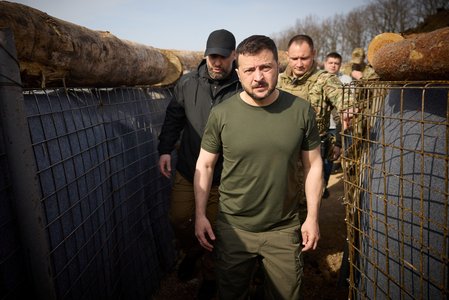
Preview: Coming Up on Washington Week with The Atlantic

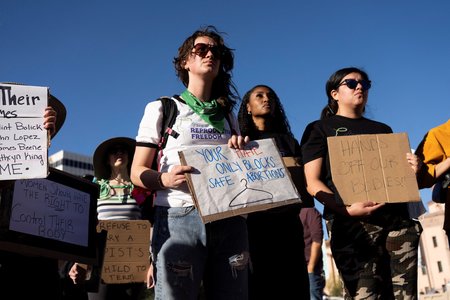
Full Episode: Washington Week with The Atlantic full episode, 4/12/24

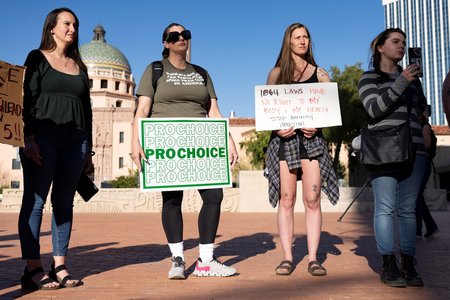
Clip: Democrats seize opportunity to make gains after Arizona abortion decision

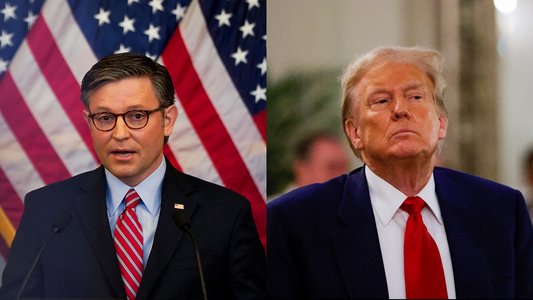
Clip: Johnson visits Mar-a-Lago to shore up support from Trump amid uncertain speakership
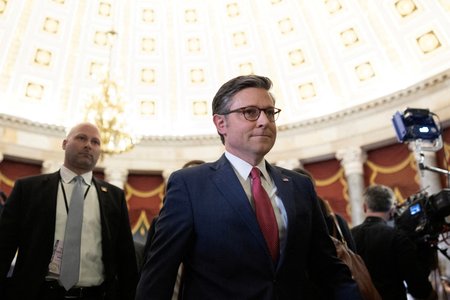
Preview: Coming Up on Washington Week with The Atlantic

© 1996 - 2024 WETA. All Rights Reserved.
PBS is a 501(c)(3) not-for-profit organization

